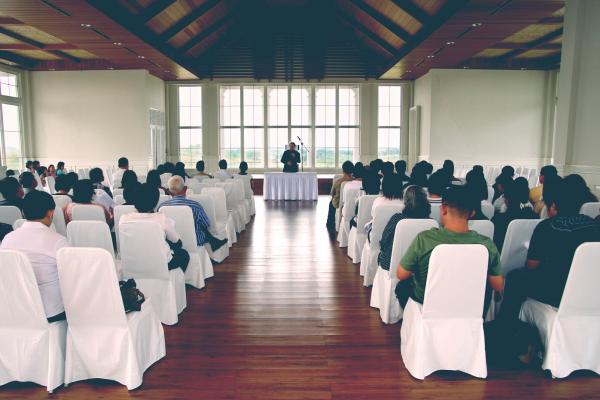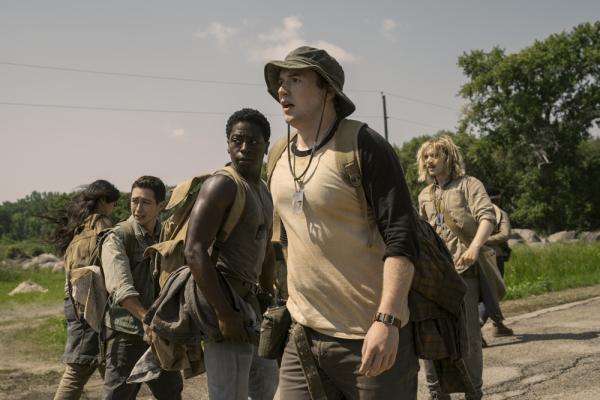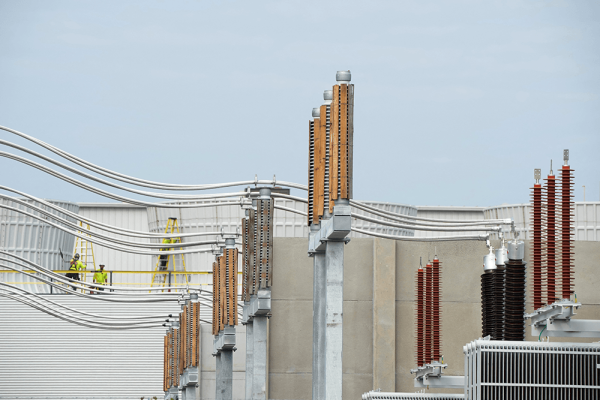I recently returned to Washington from retreating with my family on Block Island, a special place introduced to me by my mentor, William Stringfellow. He called the island just off of Rhode Island an hour “off the coast of America.” Bill went from Harvard Law School to practice in East Harlem during the 1950s and helped to start the East Harlem Protestant Parish — an early Christian community committed to racial and economic justice. Bill’s declining health had him leave New York and took him to Block Island, which became for me an almost monastic place, where the Bible and the newspaper were always held in hand.
After he went underground following the famous Catonsville Action against the Vietnam War, Daniel Berrigan was arrested there by FBI agents disguised as birdwatchers. Bill left me as a trustee of his estate, which meant the oversight of the last remaining piece or property Bill had: a little cottage for writing and reflection that he built for Dan after his release from Danbury Prison. It’s situated on the cliffs of Mohegan Bluffs, where Dan and many of us often stayed. I proposed to my wife Joy Carroll at the North Light on Block Island, and we have taken our boys there for many years — it’s a place we all have come to love and find both rest and renewal.
And it’s where I was when I heard about the horrible events in Charlottesville on Aug. 12.
Sojourners was in Charlottesville, and I was in touch with clergy who made a witness there. The question I’ve heard most often on the many phone calls and conversations both on the island and since we have returned is this: What should churches do?
Our family’s home congregation, District Church — as well as Harbor Church on the island — spoke swiftly and directly on Charlottesville and the sin of white supremacy in the days after.
But what now? Where do churches go from here? Here are five initial thoughts I would like to share, knowing the answer isn’t simple — it will take our collective discernment from the whole diversity of our churches to continue addressing our post-Charlottesville way forward.
1. Pulpit.
What should Charlottesville mean for our church pulpits? Many churches, like the two I attended after those terrible weekend events, spoke to it immediately — but many did not.
Some have rightly suggested that church congregants should request or require their pastors to preach on the sin of racism from their pulpits, perhaps for the first time, and that congregants should even withhold their tithes from churches that won’t speak out.
After Charlottesville, I recalled something Fordham professor Bryan Massingale told me he always asks of his white students: “Have you ever heard racism named and called a sin from the pulpits in your churches?” The answer is almost always no. Perhaps Massingale’s question should be asked now of every pulpit in America. Our pastors should be challenged to call white supremacy a sin from each of our nation’s pulpits as just a beginning point. We could even do the research to uncover whether our own churches or denominations have ever called racism a sin from the pulpit or in a formal way. What a changing experience would it be if every American congregation clearly and publicly called racism and white supremacy sin from their pulpits — especially those of predominantly white churches.
2. Penitence.
Of course, words are never enough. And naming a sin doesn’t mean much if you don’t call for repentance from that sin. And as we have often said, repentance in our Christian, Jewish, and Islamic traditions is much more than just shame and guilt. Rather, repentance rather means we must turn around after going in the wrong direction. True repentance requires turning around and going in a wholly new direction.
What would be acts of penitence for our churches to take — not only to renounce but to turn around from white supremacy and take action against it? Serious and determined discernment in local congregations, again, predominately white congregations, could and should be transforming around penitential acts of reading, listening, learning, and dialoguing with believers of color, accepting and joining black leadership in the churches and society, then together identifying and embracing key issues of racial justice in the nation and in each of our local communities.
Repentance also means reparations for past actions of support and even profit from slavery and white supremacy. As examples, look to the actions leaders of Georgetown University and Washington National Cathedral are now undertaking; these kinds of actions are what is needed across the country.
3. Pastoral Care.
White people need pastoral care for being morally compromised, infected, and diseased by the sins of white supremacy — and it’s time we made that a priority. Since Charlottesville, I’ve been thinking about the witness and ministry of Will Campbell, famed white southern preacher who was an early advocate for racial justice and the civil rights movement but never gave up his pastoral care for his white neighbors, including Klan members, in Tennessee.
Those angry and violent young white men who we have all seen marching without sheets at the “Unite The Right” rally in Charlottesville need pastoral care and not just our nonviolent confrontation. In fact, all of us as white people need pastoral care from America’s original sin of racism and white supremacy that has infected our hearts, minds, churches, systems, and structures. I think we need to develop comprehensive strategies for the pastoral care of white people trying to repent and to recover from the sins of racism.
4. Prophecy.
The media’s focus on the white supremacists more than white supremacy can become a distraction from the latter to the former. It’s far too easy for many white people to think and say, “I am not one of them; I am not like them.” You may not be marching, but all white people need to understand that white supremacy — as a myth and a lie, an ideology of racial difference and superiority, and an idol for the white church — is underneath everything in America and needs systematic and continual confrontation and transformation.
Transforming the systems still based on white supremacy is the ultimate challenge of Charlottesville. And that’s a matter of prophecy, of the church finding the courage to use its prophetic voice when it comes to American racism. And that includes calling out white Christian leaders, even evangelical advisors to the president, who have yet to speak up or out on racism. It’s been sad to watch Trump’s business council leaders break with him because of racism while all but one of his religious advisers have not.
5. Policy.
If religious changes in the faith community don’t result in policy changes for racial and economic justice that uplift the common good, we have failed in our obligations to our society.
How do the events in Charlottesville connect to campaigns of voter suppression aimed at minority voters that are becoming a national strategy led by the White House and the new Justice Department? One of the monuments for the Confederacy still standing is Jefferson Beauregard Sessions, the new Attorney General, who has moved quickly and quietly to block any reforms in the criminal justice system (disappointing advocates of reform on both sides of the political aisle) and to further embed and establish implicit and explicit racism at the foundations of our criminal justice systems.
Those systemic changes have to also be applied to an increasingly segregated education system, racially unequal economics, and racially biased gentrification, among many other issues.
Many have rightly condemned President Trump’s post-Charlottesville comments — he should have more strongly denounced the rally, he promoted false equivalencies between white supremacists and counter-protesters, etc. The problem with President Trump isn’t his lack of leadership on racial unity but his undeniable leadership on behalf of white backlash against racial progress and changing national demographics. Donald Trump is acting on behalf of the myth, lie, ideology, and idol of white supremacy, and is deliberately fueling racial division in a volatile American nation — with very dangerous possible outcomes. Trump is doing more than giving permission for white racism; the president of the United States is appealing to the very worst of America and its history by justifying the “heritage” of America’s original sin. Any Christian defense of that is theologically and morally indefensible.
How can the church, and our congregations in each of our local communities, become a truthful, just, and healing balm to the wounds of such division and hate rising again in America? That is a question for the prayerful discernment of every church in the nation.
Got something to say about what you're reading? We value your feedback!







